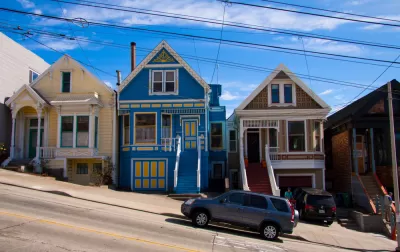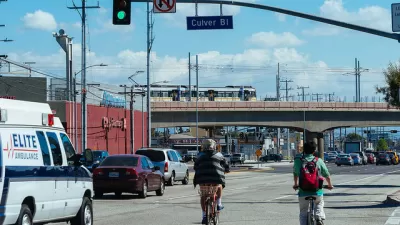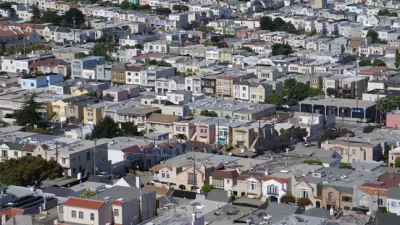Four cities could charge tolls for drivers to enter congested parts of their cities if an assembly bill introduced by Richard Bloom last month becomes law.

Legislation introduced by Assemblymember Richard Bloom, D-Santa Monica would allow two northern and two southern California cities to pursue cordon area congestion pricing demonstration pilot projects, somewhat similar to the Fix NYC plan under consideration by Gov. Andrew Cuomo (D-N.Y), which would charge drivers an $11.52 toll to drive below 60th Street in Manhattan.
"The concept has been pitched for San Francisco before and has often met fiery opposition," writes the San Francisco Examiner's transportation reporter, Joe Fitzgerald Rodriguez, on March 11. "But at least one city lawmaker said that if the state bill passes, he will introduce legislation implementing it in The City."
Planetizen dates efforts by the San Francisco County Transportation Authority to implement city congestion pricing back to at least November 2010. The authority's Mobility, Access and Pricing Study ran into opposition from the city's southern neighbor, San Mateo County, which threatened a "border toll war," and we haven't heard anything since.
However, it appears that Bloom's legislation, AB 3059: Congestion pricing demonstration pilot projects, co-authored by Sen. Scott Wiener (D-San Francisco), originates from the 100 Hours Campaign, a public engagement effort by the Southern California Association of Governments (SCAG) to reduce traffic congestion in Los Angeles. One of the proposed strategies, according to a post last September, a "decongestion fee system:"
By charging a fee to enter and use the streets within a highly-congested area at peak periods, drivers would be incentivized to make more informed travel choices and explore mobility alternatives.
In fact, the 100 Hours plan uses the term, "Go Zones" (see a supportive op-ed by Natural Resources Defense Council), which also appears in Bloom's legislation, notes Rodriguez:
The bill would remove legal barriers at the state level and allow local jurisdictions to pass their own congestion pricing pilot programs, called “Go Zones"
Rodriguez adds that San Francisco Supervisor Aaron Peskin is ready to sponsor an ordinance to authorize a Go Zone.
“I’ve long been a proponent of congestion pricing as a way to change driving behavior and reduce traffic,” said Peskin, who also serves as board chair on the San Francisco County Transportation Authority.
Transportation advocates, like the San Francisco Bicycle Coalition, expressed support for such a plan, but business groups, like the Union Square Business Improvement District, were hesitant. However, AB 3059 first needs to pass the legislature and be signed by Gov. Jerry Brown before it gets to the municipal level. Its first committee hearing is scheduled for March 19.
Hat tip to John Holtzclaw and Matt Williams.
FULL STORY: Congestion pricing revival: State bill would allow SF to charge cars for downtown entry

Maui's Vacation Rental Debate Turns Ugly
Verbal attacks, misinformation campaigns and fistfights plague a high-stakes debate to convert thousands of vacation rentals into long-term housing.

Planetizen Federal Action Tracker
A weekly monitor of how Trump’s orders and actions are impacting planners and planning in America.

In Urban Planning, AI Prompting Could be the New Design Thinking
Creativity has long been key to great urban design. What if we see AI as our new creative partner?

King County Supportive Housing Program Offers Hope for Unhoused Residents
The county is taking a ‘Housing First’ approach that prioritizes getting people into housing, then offering wraparound supportive services.

Researchers Use AI to Get Clearer Picture of US Housing
Analysts are using artificial intelligence to supercharge their research by allowing them to comb through data faster. Though these AI tools can be error prone, they save time and housing researchers are optimistic about the future.

Making Shared Micromobility More Inclusive
Cities and shared mobility system operators can do more to include people with disabilities in planning and operations, per a new report.
Urban Design for Planners 1: Software Tools
This six-course series explores essential urban design concepts using open source software and equips planners with the tools they need to participate fully in the urban design process.
Planning for Universal Design
Learn the tools for implementing Universal Design in planning regulations.
planning NEXT
Appalachian Highlands Housing Partners
Mpact (founded as Rail~Volution)
City of Camden Redevelopment Agency
City of Astoria
City of Portland
City of Laramie





























